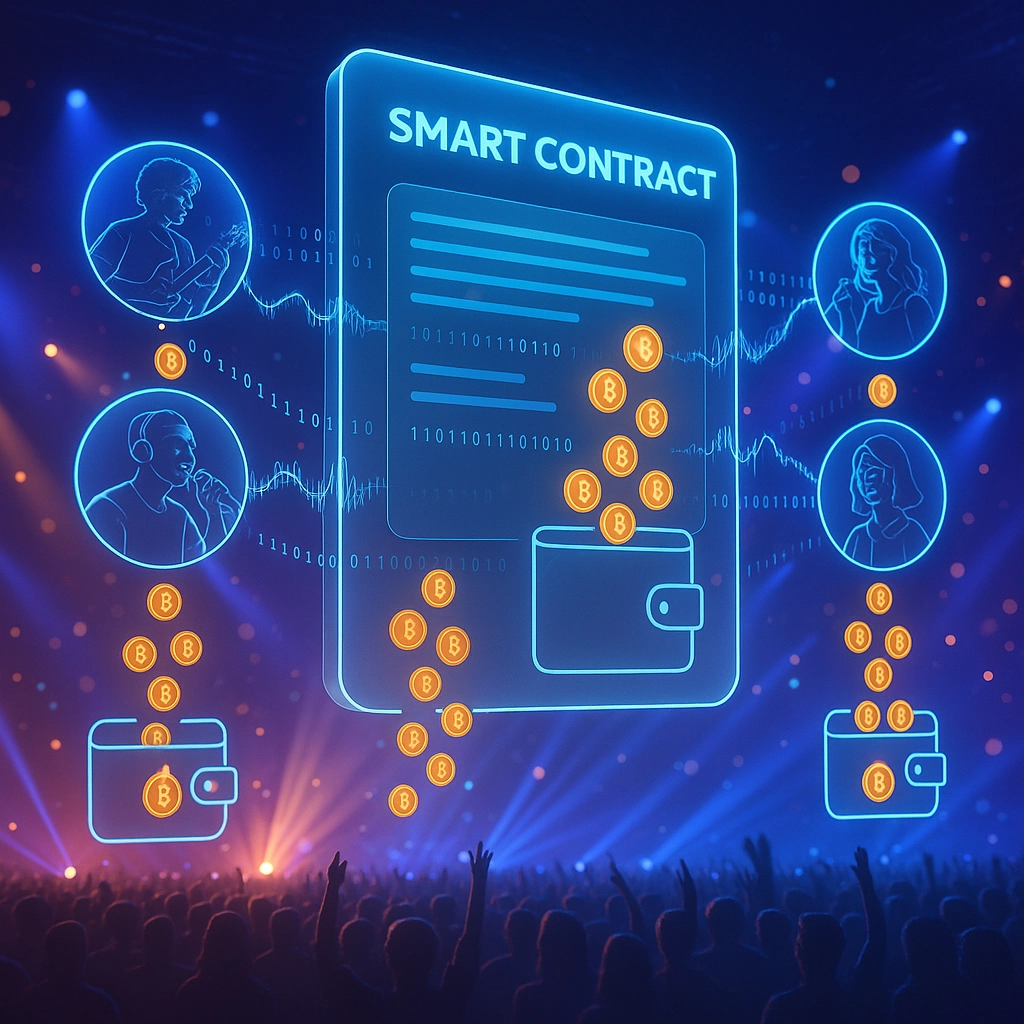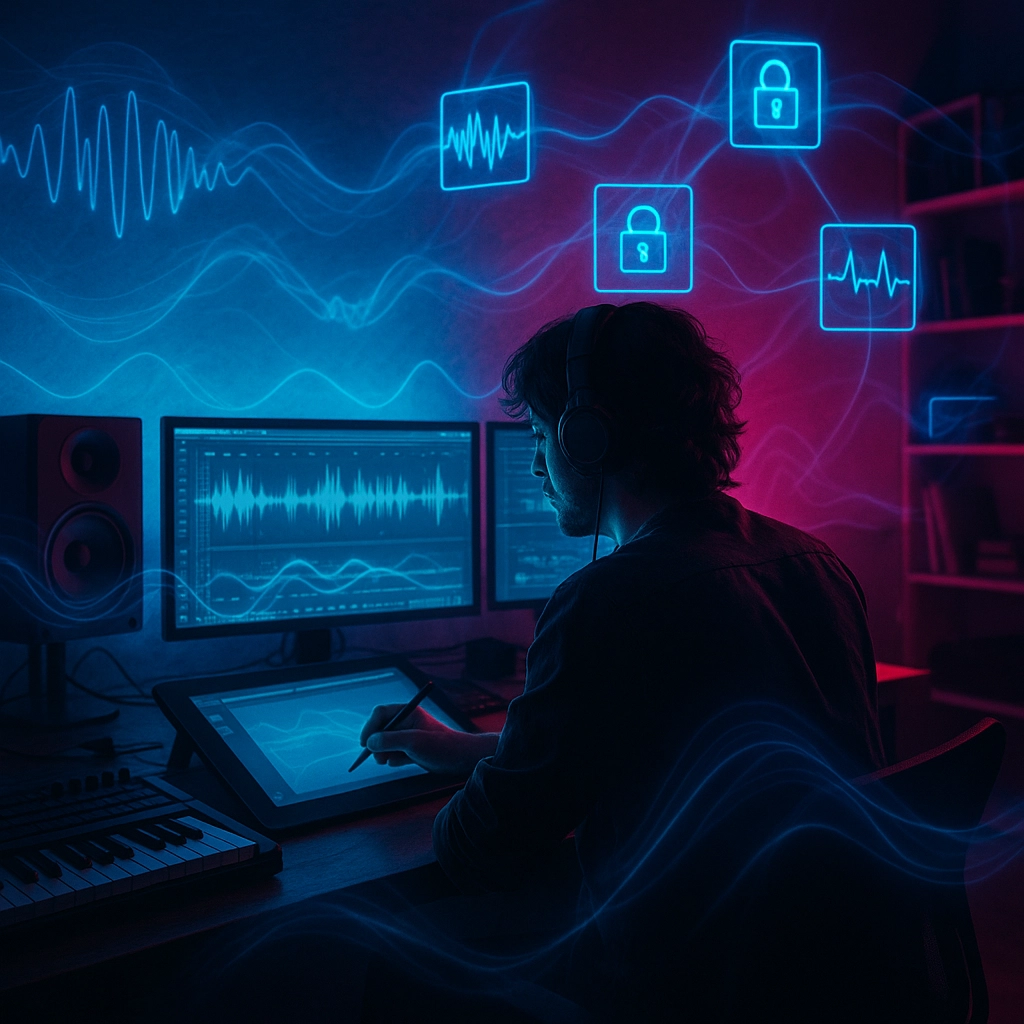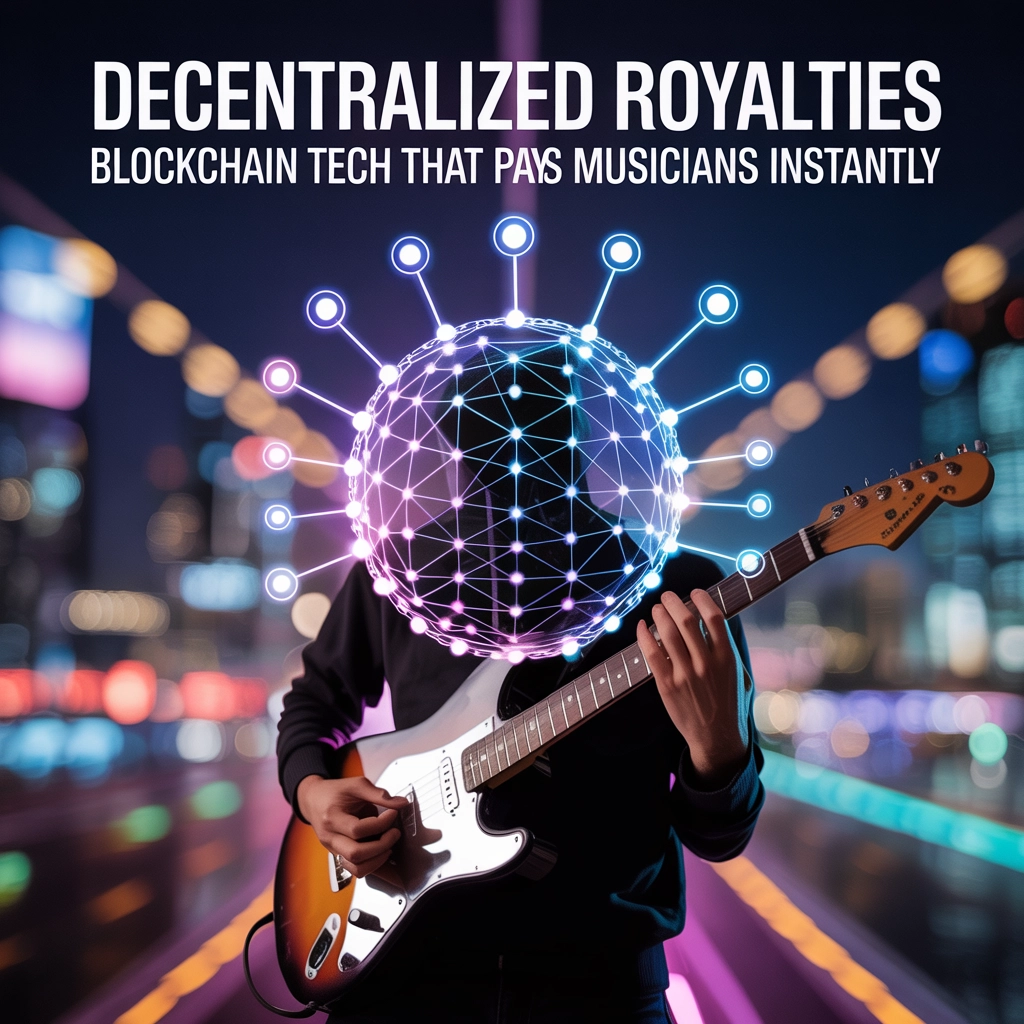The rise of blockchain is shaking up almost every industry—music included. One of the most promising breakthroughs? Decentralized royalties, using blockchain tech to pay musicians instantly and fairly. No more waiting months for a check or slicing off a chunk for big intermediaries. Let’s get into how this technology is creating a fairer, faster payments system for artists, songwriters, and even fans.
What Are Decentralized Royalties?
Decentralized royalties mean using blockchain ledgers and smart contracts to automatically track music usage and send royalty payments straight to the right people in real time. Unlike legacy royalty systems, where money trickles through collecting societies, record labels, payment processors, and a maze of paperwork, blockchain tech makes all that instant, automated, and transparent.
The result: more money stays in artists’ pockets, and everyone involved can see what’s being paid—right when it happens.
Smart Contracts: The Tech Behind Instant Payments
Smart contracts are basically mini-programs running on the blockchain. When a song is streamed, downloaded, or sold, a smart contract automatically calculates which contributors get paid and how much. Then, it pushes those payments instantly (often in cryptocurrency) to each person’s digital wallet—no humans, no waiting, no mistakes.
How it works:
- You upload a track to a blockchain-powered platform.
- In the metadata, you define each contributor’s share (producers, lyricists, performers, etc.).
- Every time the song is played, the smart contract logs the event, splits the revenue, and pays everyone instantly.
No collecting societies, no confusing statements, and no months-long delays. Payments can land in your crypto wallet seconds after a fan hits “play.”
Bypassing Intermediaries: More Money For Artists
The current music royalty system involves a crowd of middlemen—labels, publishers, payment processors, performance rights orgs, and digital platforms—all taking a cut or charging fees. Blockchain collapses these layers, creates peer-to-peer connections, and routes cash straight from fans (or platforms) to the creators.
Why it matters:
- Artists keep more of every dollar earned.
- Less admin work and paperwork hassles.
- Better for indie musicians and smaller rights holders.
Imagine a world where a musician uploads a track, shares it directly, and gets paid every time someone, anywhere in the world, streams or downloads it. With no central entity, no gatekeepers, and no unclear payout formulas, blockchain makes this possible—and it’s already happening on some platforms.
Transparency and Security You Can Verify
Every transaction on the blockchain is timestamped, public (but private in the sense that only wallet addresses are visible), and immutable. That means once a payment or royalty share is recorded, nobody can change it—not even the platform itself.
Transparency wins:
- Anyone involved can verify the full history of every payout.
- Artists have complete visibility into how much they’ve earned, and from where.
- No more confusing royalty statements or disputes about “missing money.”
And because blockchain transactions are encrypted and verified by a whole network—not just one company—they’re extremely secure and resistant to fraud or tampering. 
Real-World Platforms Bringing Decentralized Royalties to Life
It’s not just theory—there are live platforms using blockchain for royalties right now:
- Audius: A decentralized streaming platform letting artists upload music and receive instant crypto payments via smart contracts.
- Ujo Music: Focused on composer rights, Ujo lets musicians tokenize their music, sell it directly to fans, and split royalties instantly.
- Stem Disintermedia: Uses blockchain for automated royalty splits and financial transparency for independent artists and labels.
Some platforms are also integrating NFTs (Non-Fungible Tokens)—unique digital assets that can represent ownership of a song or a share of future royalties. Artists can sell part of a song’s future income to fans, who then earn a cut every time it’s played. This builds entirely new business models and lets superfans support their favorite musicians in ways that were never possible before.
The Fan Connection: Music Investment Goes Mainstream
Decentralized royalties aren’t just about faster musician payouts—they let fans get in on the action too. Using tokenization, artists can issue “shares” of their songs or albums as digital tokens.
- Fans can buy tokens, effectively investing in an artist’s future earnings.
- When a song earns royalties, token holders receive a portion instantly.
- Fans are more loyal, feel invested, and artists get upfront funding.
It’s crowdfunding, streaming, and royalty payments all rolled into a secure, direct, blockchain-powered package. Over time, fans could even buy, sell, or trade these royalty tokens like digital collectibles.
Unlocking New Revenue Streams and Freedom for Creators
Blockchain’s decentralized royalty system is much more than a tech upgrade. It’s a shift toward artist empowerment and creative freedom:
- Direct control: Artists set their own terms, prices, and revenue splits.
- New business models: Limited-edition tracks, access tokens, fractional ownership, community-powered releases.
- Global reach: Payments flow to anyone with a crypto wallet, instantly, in any country.
This also means musicians can experiment with pay-per-listen, bundle music with exclusive experiences, or even reward fans for promoting their work. The possibilities are just starting.
Challenges and the Road Ahead
Of course, blockchain royalties aren’t without hurdles:
- Not every fan or artist is ready for crypto wallets and tokens.
- Legal infrastructure and copyright laws are still catching up.
- Not all platforms are truly decentralized—watch out for “blockchain washing.”
But the momentum is building fast. As tech gets easier to use and more mainstream, expect more artists, platforms, and listeners to ditch the old royalty system for faster, fairer, decentralized alternatives.
Where This Tech is Taking Us
For the first time in modern music history, artists, songwriters, producers, and fans can all participate directly in the value created by music—instantly, transparently, and securely. Blockchain-powered decentralized royalties mark a major upgrade for an industry long overdue for disruption.
Want to dive deeper or see what’s live right now? Explore real-world projects and news about blockchain + music innovation at Disruptarian Radio.
If you’re ready to skip the middlemen and get paid instantly every time your music is played, the future is already here—and it’s decentralized.






